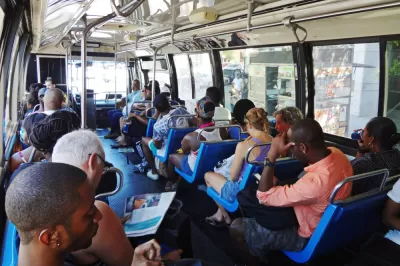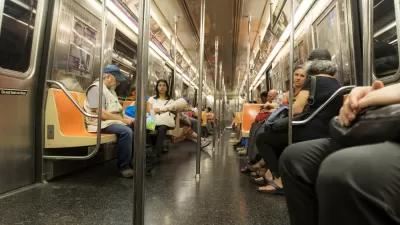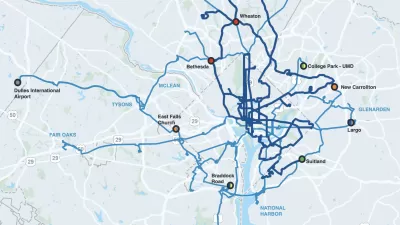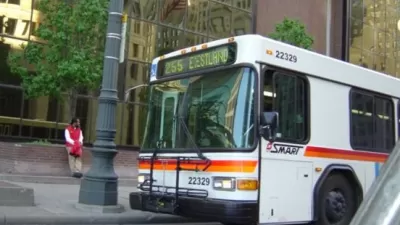As travel patterns and needs shift, transit agencies should look at service changes as a much-needed 'regular practice.'

In a guest post for TransitCenter, Laurel Paget-Seekins argues that, despite the challenges, "transit service needs to change in response to the COVID pandemic and to address underlying inequities." Although "[i]n general the status quo favors people and communities with access to political power," she writes, "this inertia was starting to give way, as agencies launched bus network redesigns to catch up on years of delayed service changes. COVID made it even more imperative to reassess service provision, as the pandemic altered travel patterns and revealed where and when service is most needed."
"Even as the pandemic (hopefully) recedes, the changes in travel needs will last for years as new patterns of remote work, deliveries, and land use take shape." As such, service changes must become "a regular practice," and "we need to find ways for agencies and communities to work through them collaboratively."
Paget-Seekins offers some suggestions for how agencies can address service changes in the future:
- "Transit advocates and agencies need to address the operating funding issue head-on and proactively."
- "Agencies need to work with community organizations, elected officials, and their governance boards to commit to a process of regular service changes for the next few years — even if there isn’t a funding crisis."
- "Agencies and community organizations also need to collaborate on the data that will inform decisions."
According to Paget-Seekins, "[i]t will be a huge disservice to riders for transit service to get stuck due to the perceived political difficulty of service changes — or for the service conversation to be driven only by fiscal emergencies and not community transportation needs."
FULL STORY: Service Changes Are Hard — and They’re Even More Necessary Now

Alabama: Trump Terminates Settlements for Black Communities Harmed By Raw Sewage
Trump deemed the landmark civil rights agreement “illegal DEI and environmental justice policy.”

Planetizen Federal Action Tracker
A weekly monitor of how Trump’s orders and actions are impacting planners and planning in America.

Why Should We Subsidize Public Transportation?
Many public transit agencies face financial stress due to rising costs, declining fare revenue, and declining subsidies. Transit advocates must provide a strong business case for increasing public transit funding.

Understanding Road Diets
An explainer from Momentum highlights the advantages of reducing vehicle lanes in favor of more bike, transit, and pedestrian infrastructure.

New California Law Regulates Warehouse Pollution
A new law tightens building and emissions regulations for large distribution warehouses to mitigate air pollution and traffic in surrounding communities.

Phoenix Announces Opening Date for Light Rail Extension
The South Central extension will connect South Phoenix to downtown and other major hubs starting on June 7.
Urban Design for Planners 1: Software Tools
This six-course series explores essential urban design concepts using open source software and equips planners with the tools they need to participate fully in the urban design process.
Planning for Universal Design
Learn the tools for implementing Universal Design in planning regulations.
Caltrans
Smith Gee Studio
Institute for Housing and Urban Development Studies (IHS)
City of Grandview
Harvard GSD Executive Education
Toledo-Lucas County Plan Commissions
Salt Lake City
NYU Wagner Graduate School of Public Service





























